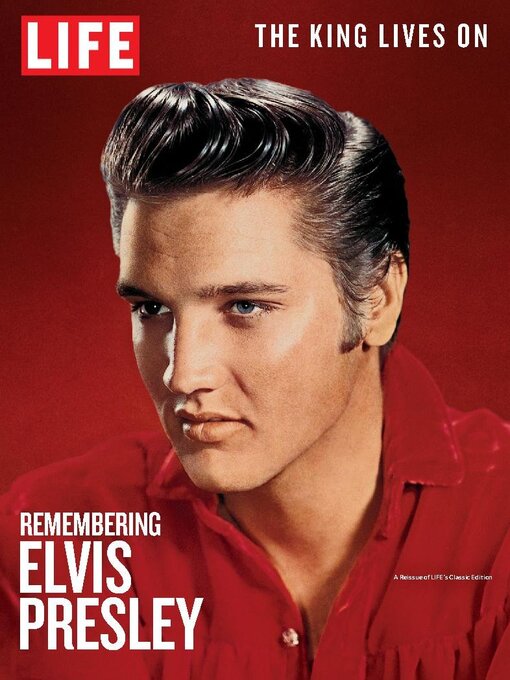Celebrate the King of Rock 'n' Roll with this keepsake biography of Elvis Presley, lavishly illustrated with dozens of historic photos, including many from the archives of LIFE magazine. A detailed timeline traces Elvis's life from when he received his first guitar to his glory days filled with recording, acting, and gyrating for shrieking fans, to his great '68 comeback, and right up to his untimely death in 1977. Intimate photojournalism combines with insightful text to reveal Elvis behind the scenes: at Graceland and on the road, with Priscilla and Lisa Marie, in front of the cameras, and on the stage. Explore the days of "Heartbreak Hotel," "Don't Be Cruel," "Blue Suede Shoes," "Jailhouse Rock," "Love Me Tender," "Blue Christmas" and so many other unforgettable hits.
Remembering Elvis Presley
He’ll Always Be Elvis
January 8, 1935 • It was a tragic and glorious day when the twins arrived. Tragic because the first, Jesse Garon, was dead. His father placed Jesse’s body in a shoe box and buried it in an unmarked grave. Glorious because the second, Elvis Aron, was bound for greatness, his mother was sure. “When one twin dies,” she later told Elvis, “The one who lives gets the strength of both.”
Making of a Star • He was never so terrified as the day he walked onstage at the Overton Park Shell in Memphis, July 30, 1954. The people had come to hear Slim Whitman croon “Indian Love Call.” But first they got Elvis. As soon as he began to sing, they began to hoot. They’re making fun of me, he thought. Devastated, he finished “Blue Moon of Kentucky” and slunk off. But backstage everyone was elated, pushing him out for an encore. “The girls love you,” they told him. “It’s the way you shake!”
The Vinyl Elvis: Platinum • “Heartbreak Hotel” is Elvis’s first No. 1 hit on the Billboard charts; at right, he holds up the framed gold record. The song was written for him by Mae Boren Axton and Tommy Durden, who had been spurred by a newspaper article about a hotel guest who had committed suicide. A life was erased, and a legendary blues song was born.
Rockin’ The Army • When the draft notice came, all his friends tried to cheer him up. “They’ll never take you,” Cliff Gleaves said. “You’re too big.” But it wasn’t just Uncle Sam who wanted him to go. So did Colonel Parker. The draft was a free public-relations bonanza. When the Army offered Elvis a performer’s post in Special Services, the Colonel would have none of it. “If they want my boy to sing,” he said, “they are going to have to pay for it like anyone else.” Elvis’s last words as a civilian were “F--- Cliff Gleaves!”
Prisoner of Hollywood • “What have they done to Elvis?” the New York Herald Tribune lamented after the release of Harum Scarum. It was Elvis’s 15th film in five years, and though, as a Valentino fan, he’d begun it with high hopes, it turned out to be perhaps his most embarrassing venture ever. After the film wrapped, he timidly told a LIFE reporter he wanted to do something of a different nature, something there would be an achievement in. But Colonel Parker told the same reporter, “I don’t think we should experiment with something that’s making a profit.” In many theaters, Harum Scarum appeared on a double bill with a Japanese film called Ghidrah, the Three-Headed Monster. It also made money hand over fist.
Coming Back • On a summer day in 1968 he stood in front of an unopen bar on L.A.’s Sunset Strip. Steve Binder was right: He was unrecognizable; people were passing by without giving him a second look. The NBC producer had dared Elvis to show himself in public, and there was no getting around it, Elvis was as cold as week-old corn bread. Something had to be done.
August 16, 1977 • “Have you heard the news … There’s good rocking tonight” are lyrics from Elvis’s second-ever...
